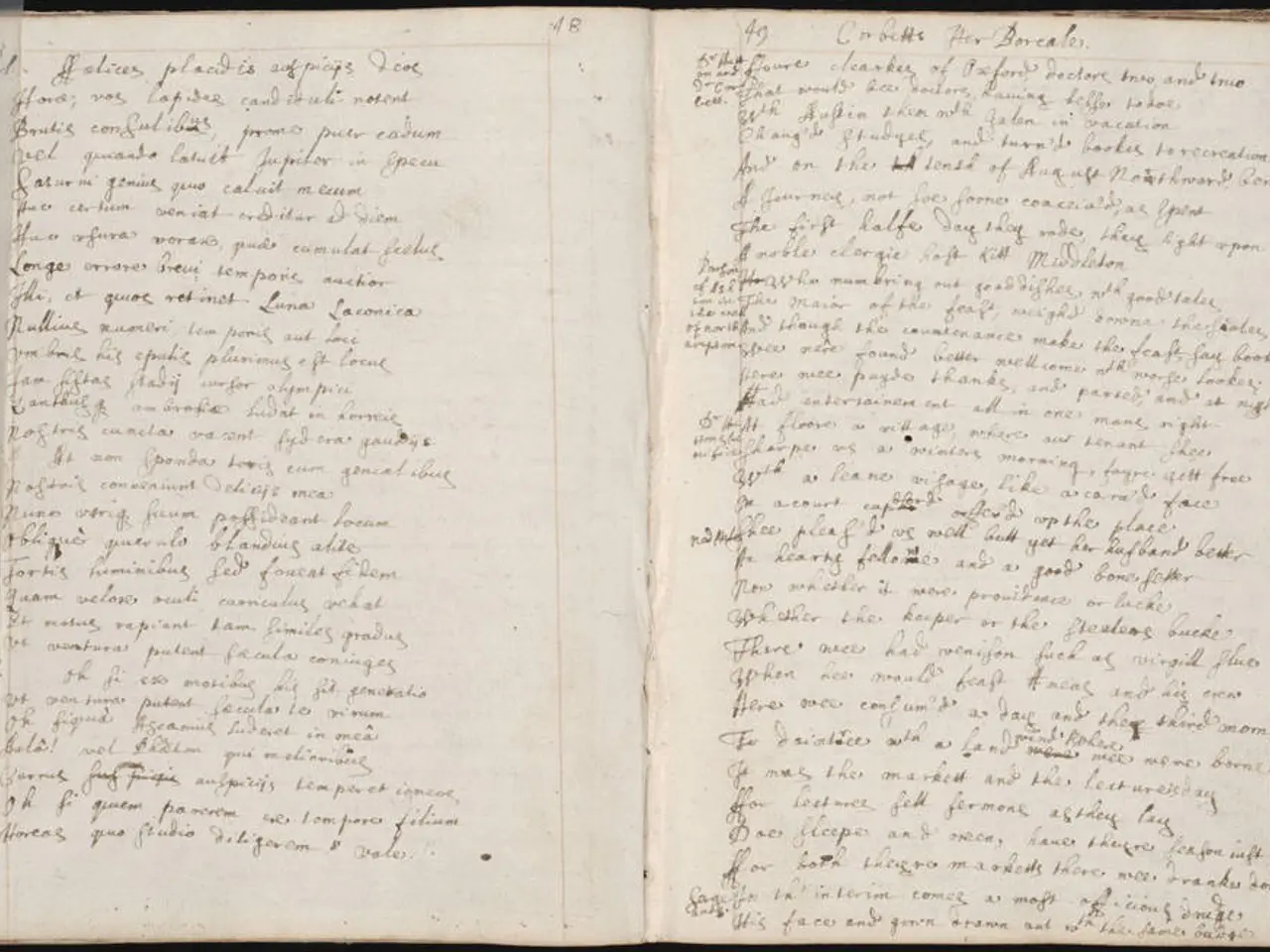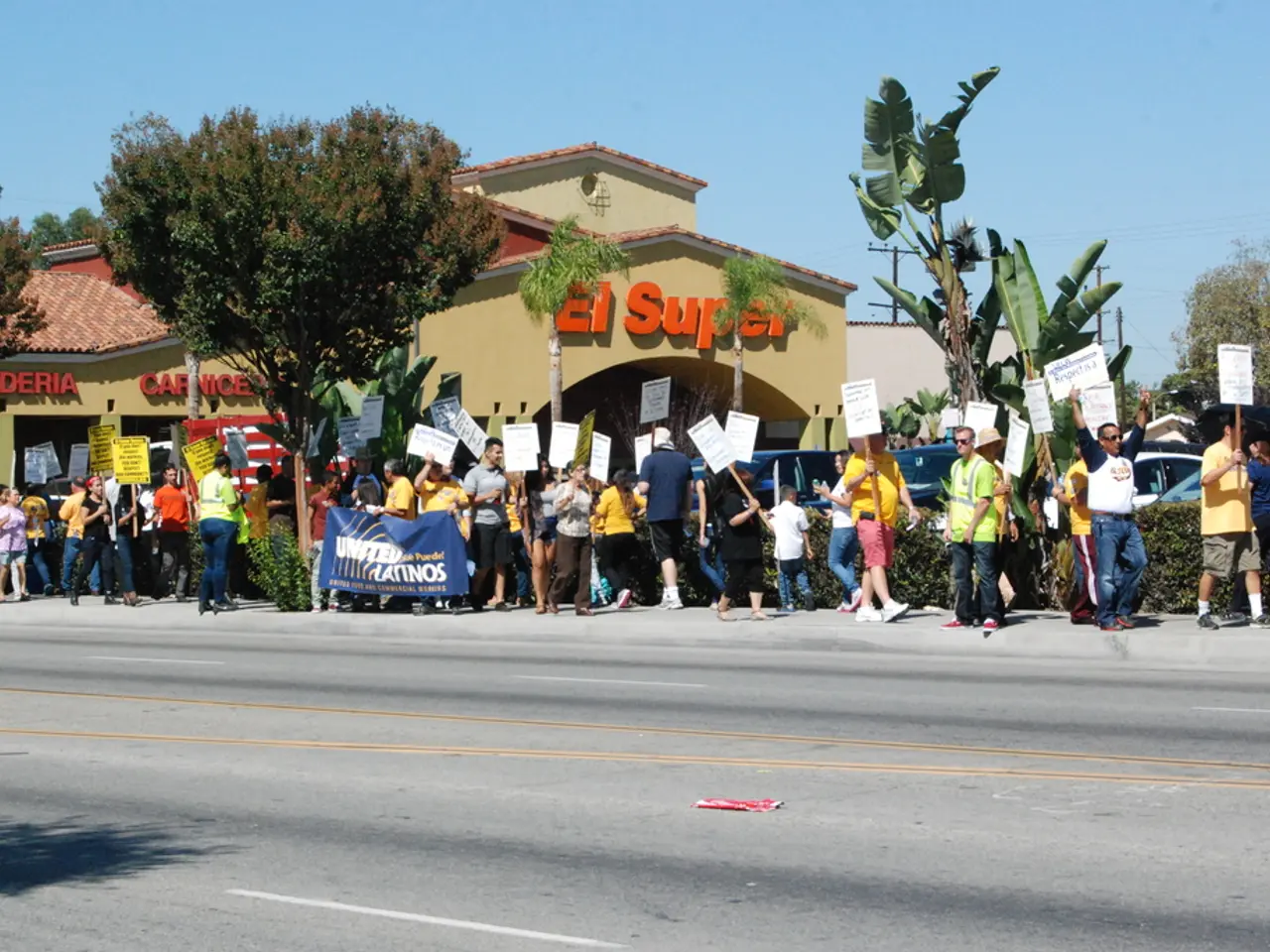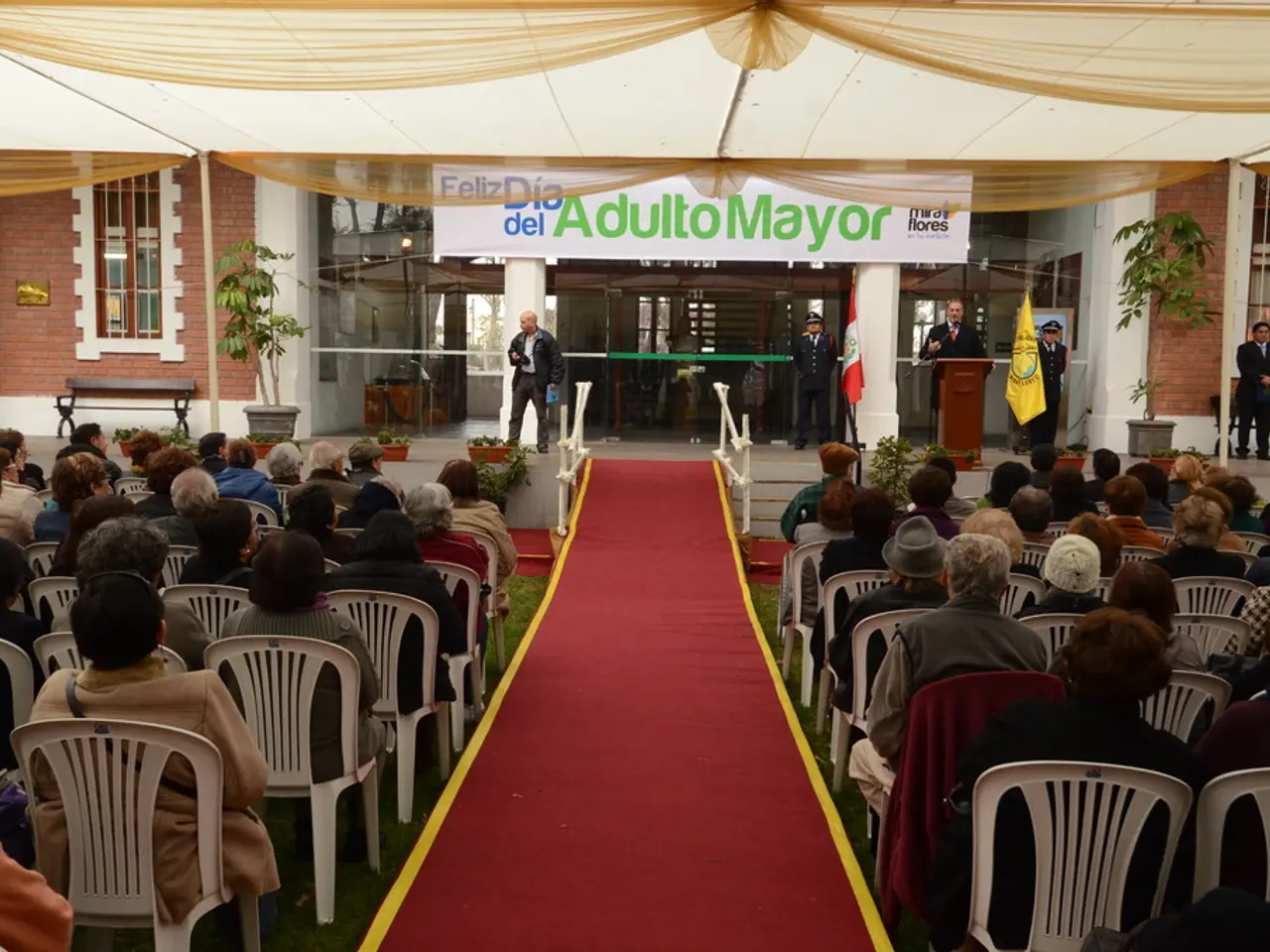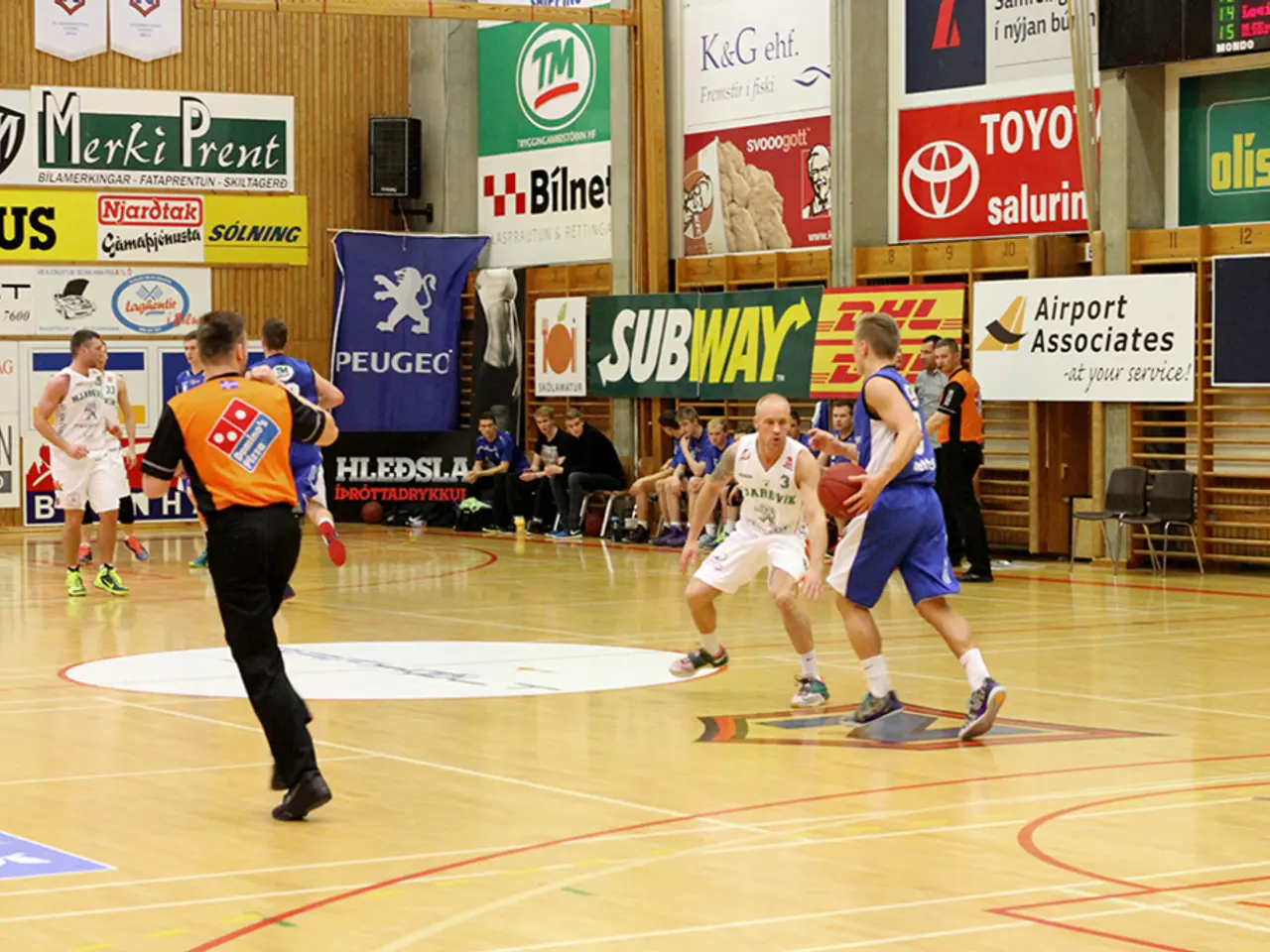Faeser's downward spiral and loss of esteem.
Unleashing the Freedom Press: Compact's Resilience Wins Over Ban
In a surprising twist of events, former Interior Minister Nancy Faeser's (SPD) ban on the controversial far-right magazine, Compact, has crumbled. The Federal Administrative Court in Leipzig ruled that the publication, often referred to as a central mouthpiece of the right-wing extremist scene, is essentially covered by freedom of expression.
Judge Ingo Kraft, presiding over the ruling, explained that the Basic Law guarantees the freedom of opinion and press to even those who antagonize the constitution. While Compact's content often contains polemical and provocative statements, the court deemed that a boundary of constitutional antagonism had not been breached.
The Boundary of Speech Freedom
Many may find Compact distasteful, as t-online columnist Christoph Schwennicke suggests. But despite the strong opposition to the magazine, numerous lawyers warned that Faeser's decision might be legally shaky. Predictably, commentators argue that Faeser's actions were damaging to all efforts aimed at containing right-wing extremism. On the other hand, the verdict is a milestone for press freedom, with the Federal Constitutional Court once more confirming that while there are almost no restrictions on speech in this country, any transgressions against civil or personal rights can be contested through civil or press law.
The Courts' Neutrality
As for the AfD and its extreme faction, the verdict disproves their usual claims of suppression, with the judiciary setting legal boundaries without any political influence or ideology. This truth puts an end to the "suppression" myth peddled by the party.
The New Right's Unbridled Speech
The new right mainstream cannot be silenced through bans, but only by crafting effective politics that tackle social issues. With ethnonationalist-right extremist Björn Höcke already voicing his disapproval, it is clear that a strategy called “Mosaic Right” by AfD ideologue Benedikt Kaiser is in play. This strategy includes pushing for clear taboos through controversial proposals while others, usually the extra-parliamentary “vanguard,” persistently test the limits of what can legitimately be said and done.
Compact founder Jürgen Elsässer was by no means certain of victory in court. Even within the right-wing populist camp, there is disagreement about how far they should push the envelope. Elsässer himself had tried to downplay many of the pointed articles and conspiracy theories in his magazine as marketing “exaggerations.”
What Constitutes Aggressive Combat?
In order to be banned, Compact would have had to prove that it was acting in an aggressively combative manner against the constitutional order—terms like "overthrow" or "revolution" are not sufficient for this. The court emphasized that Compact’s publications indeed contained numerous violations of human dignity protected by the Basic Law. However, these violations had not yet reached a “pregnant” character.
On a Par with the "Spiegel Verdict"?
The court ruling, with only an oral justification so far, opens up the possibility of banning media via association law. This implies that associations whose purposes or activities violate criminal law or are against the constitutional order or international understanding may be banned. Compact editor Jürgen Elsässer views this ruling as being in line with the Spiegel decision of the Federal Constitutional Court in 1962, which established the benchmark for press-related jurisprudence with its assertion that free media is an essential element of a free state.
The thoughts may be free, and no one can catch or cage them. In Jürgen Elsässer's words, "We don't create a newspaper hiding behind the warm stove or the computer. But our goal is the overthrow of the regime." While Compact cannot be banned, an AfD ban procedure based solely on the constitutional protection report would likely fare poorly as well. The question remains whether the party or its extremist faction will need to enlist armed militias or similar attributes to satisfy the condition of being "aggressively combative."
Additional Insights:
Comparison with the Spiegel Decision: The Leipzig ruling is reminiscent of the Spiegel Decision of 1962, as both decisions underscore the importance of a free press in a free state. In the Spiegel case, the Federal Constitutional Court had stated that a free press, free from public control and censorship, is critical for public opinion to be expressed, debated, and clarified. In the Compact case, the court's focus on the power of free social debate over outright bans echoes the sentiments of the Spiegel Decision.
International Implications: Similar struggles against far-right propaganda and extremism are being faced in other countries, such as France, Sweden, and the United States. The German court's decision to uphold press freedom while grappling with extremist content may provide a useful reference for other nations grappling with this complex issue.
Electoral Performance of Far-Right Parties: Far-right parties have seen a resurgence in recent years, with the AfD securing over 20% of the vote in the 2025 German federal election—a record high since World War II. This trend has posed challenges to the political landscape and calls for effective counter-strategies against extremist ideologies.
References:1. Nazi-Verbot: Bundesverwaltungsgericht streicht Verbot des rechtsextremistischen Magazins Compact. https://www.zeit.de/politik/deutschland/2022-03/bverwg-compact-rechtsextremismus-verbot-magazin- Lisa-Schwab2. BVerwG: "Compact" darf wieder veröffentlicht werden. Rechtsextremisten-Verbot gescheitert. https://www.spiegel.de/politik/deutschland/bverwg-rechtsextreme-verfassungswidrigkeit-des-publizisten-compact-hreicht-a-e042de1e-87f3-4c82-beff-f999dcdd2d243. Federal Administrative Court's decision on Compact: Far-right Magazine can be published again. Extremist ban failed. https://www.dw.com/en/federal-administrative-court-compact-RIGHT-EXTREMISM-Verbot-gescheitert/a-608188674. German Court Rules Against Banning Far-Right Magazine Compact. https://www.reuters.com/world/europe/german-court-rules-against-banning-far-right-magazine-compact-2022-03-30/
- The Leipzig ruling, reminiscent of the Spiegel Decision of 1962, reinforces the significance of a free press as an essential element of a free state, especially in the midst of political struggles against far-right propaganda and extremism.
- Despite the strong opposition to Compact, the German Federal Administrative Court's decision to uphold press freedom and tackle right-wing extremism through civil or press law sets a legal boundary without any political influence or ideology, highlighting the importance of policy-and-legislation, general-news, politics, and crime-and-justice in addressing such issues.








